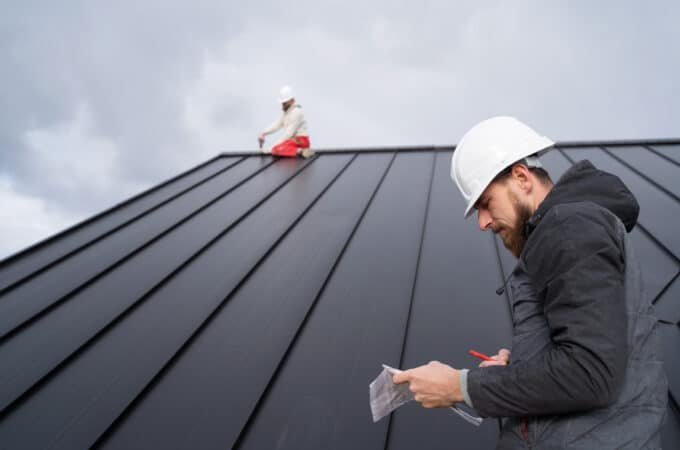
Best Time Of Year For A Roof Replacement
If you’re thinking about replacing your roof, there is no wrong time to do it. There is only the most optimal time to do it.
Roof replacements are difficult, challenging projects that take up a lot of time, effort and can be expensive. But the advantages of a new roof are evident: decades of security, reduced expenditure and costs, lower maintenance fees and upgrades; overall, the long-term benefits outweigh the initial outlay.
The question then is, what is the best time of year to get a roof replacement? We take a look at each of the four seasons, highlighting pros and cons, so you know what to expect.
Table of Contents
ToggleFall – September, October, November
Pros:
- The comfortable and mild weather and temperatures make it ideal for the crew to get the job done promptly.
- The weather also works well with the roofing materials, ensuring minimal issues with replacement and installation.
- There is less demand compared to summer and spring, where more homeowners want roof replacements.
- The ideal time to get it done before the start of winter.
Cons:
- There might be the odd chance that some summer jobs spill into the fall months, which could delay the timing of the replacement.
- There is more rain than usual in the fall – or random bursts of snow – which might delay the project.
Winter – December, January, February
Pros:
- You can still get roof replacements in the winter months. For example, our resident expert, Hubbard Roofing & Exteriors, is skilled in handling roof replacements in winter.
- It’s the least busy season for roofing companies, so as long as the weather permits, you can get the project completed.
- Roofers are more accessible and can, weather permitting, complete the project promptly.
Cons:
- The roofing company has to have experience in working and dealing with roof replacements during the winter months. It’s a different ballpark altogether.
- The project will require extra safety protocols, which might be more costly.
- The project might take longer due to shorter days and the cold weather.

Spring – March, April, May
Pros:
- Warmer weather allows for roofers to work faster and more effectively due to milder temperatures
- It’s just the beginning of the busy season, so there are still lots of roofers available to help you with your project.
- The lower humidity levels also lessen the possibility of damaging effects of moisture on the roof during the replacement.
Cons:
- If the weather becomes extremely hot, it might delay the timeframe of the project.
- If you’re not early, you could find that many roofers are booked up throughout the summer.
- Due to the influx of projects, roofers will be juggling multiple projects at once, delaying your project.
Summer – June, July, August
Pros:
- The consistently warm weather means that roofers can complete the job in time and with little delays.
- Little to no issues arise during the summer months in regards to the roofing materials or products.
Cons:
- It’s the busiest season, so chances are roofers are going to be booked up.
- The extra projects mean more delays for your project, which can spill over into the fall.
- Extreme heat can delay projects and impact the quality of your roofing materials.
- Because of the popularity of this season, it’s also going to be harder to get a quick scheduling turnaround time.
While there are pros and cons to getting a roof replacement in any month of the year, you should always get one regardless. You risk causing more damages to your roof and home if you do not get roof replacements sooner rather than later.
Ensure you find the right roofing company to help you with your replacement. Consider the materials and timeframe when considering the best time of year to start your roof replacement project.
Mark Ligon is the Marketing Manager at a leading e-commerce store in plumbing supply. Mark focus is on DIY projects and providing creative and practical advice to individuals looking to complete DIY projects of their own






